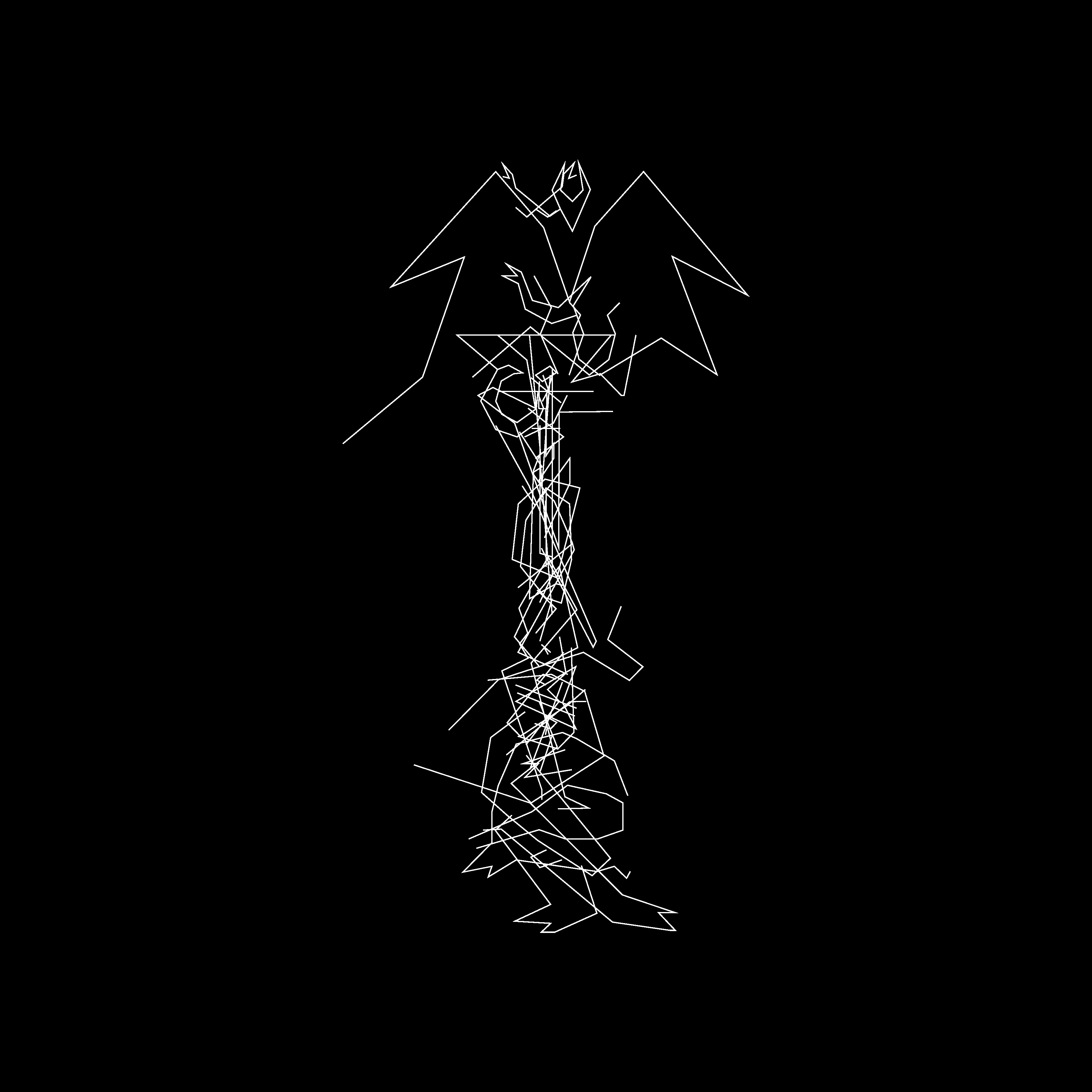
By HARISSON SMITH
Deletion is a hypermodern concept. Before deletion, objects would simply occupy space in the trash, be pushed aside or forgotten about. Things could resurface, work their way back into prominence. But deletion is final, forever and instant. It exists purely in the non-physical realm. Physical matter cannot be destroyed, or deleted, only reshaped and resized. Deletion is instant death, deletion is permanent, deletion is the harshest rejection. So it’s no surprise Daniel Lopatin’s latest record is perhaps his darkest, most violent work yet.
I imagine the “Garden of Delete” to be a modern-day parable to Garden of Eden story, except there is no melodramatic casting out of humanity, only a swift and finite deletion of humanity from heaven. In this dark, confusing and cold setting, Lopatin thrives. Similar to Daft Punk’s album “Random Access Memories,” Lopatin toys with the conflict between human emotion and mechanical perfection (although one is more likely to sit well with your mom). The centerpiece “Mutant Standard” contains a brief human conversation of “Hey! Oh yeah… Hey” but is quickly devoured by a pummeling synth arpeggio. The album’s first full track “Ezra” uses a sample of a man probably saying the song’s title but its constant repetition and choppiness dissolve it to a meaningless bark. The song later transforms into a speedy 8-bit composition, music that would likely populate a video game universe, but probably not one IRL. “Child of Rage” also uses a short father-son dialogue to preface the song, but it’s never returned to once Lopatin’s laptop is opened and the switches are flipped.
Lopatin certainly draws emotional influence if not sonic influence from his latest tour with popular industrial-techno-rockers Nine Inch Nails. Their melodramatic and hilariously dark approach to techno appears throughout this album, from the minimal yet crushingly metal drum break of “I Bite Through It” to the double bass assault of “Sticky Drama.” Thankfully, Lopatin is true to his intellectually experimental roots and never really strays into the sickeningly campy approach Trent Reznor is so interested in. (Whew). “G.O.D” finds its power when it delves into bursts of trance-inducing noise, unintelligible vocals sculpted by the harsh hand of filtering, and ominous soundscapes looming behind free jazz-like string pluckings.
Some of this album sounds like I’m getting my consciousness exported and uploaded onto a digital realm, and in the process, I feel my soul being wrenched from my body. Some of this album sounds like I’m in a horror movie that’s entirely made out of clip art. Some of this album sounds like vaporwave was put in a cage for 20 years, was only played Evanescence and Gesaffelstein, showed Blade Runner continuously, and was poked with a USB drive on a stick. In particular, “No Good” sounds like I’m listening to Kanye West’s “Runaway” through a calculator on a bad acid trip. Perhaps that’s hyperbolic, but on this record Lopatin just isn’t concerned with understatement.
It’s quite satisfying for an experimental electronic album to be striking and confident, but remain very, very far from the reaches of pop music when so much lo-fi minimal noodling permeates bandcamps and soundclouds across the world-wide-web. Although Lopatin stated attendees of the Nine Inch Nails tour “were fairly disturbed by my drone set” it seems that simply being on the big stage has imbibed his music with an intensity unexperimented with previously. This album should be blasted out of speakers, to be freed from the lonely confines of noise-isolating headphones. Allow this digital animal to feast on your environment’s quietness.
Subscribe to the Mossy Log Newsletter
Stay up to date with the goings-on at Lewis & Clark! Get the top stories or your favorite section delivered to your inbox whenever we release a new issue.

Leave a Reply